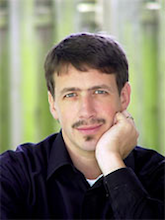Dr. Robert Biswas-Diener is widely known as the Indiana Jones of Positive Psychology because his research on happiness has taken him to such far flung places as Greenland, India and Kenya. He is a part-time instructor at Portland State University and sits on the editorial boards of the Journal of Happiness Studies and Journal of Positive Psychology. Robert is a Certified Mentor Coach (CMC) and has worked with clients on four continents. Robert is author of Practicing Positive Psychology Coaching (2010), Happiness: Unlocking the mysteries of psychological wealth (2008) and Positive Psychology Coaching (2007). He is also co-founder of the charitable mission The Strengths Project.
Discover these discount codes for you!: Angie’s List and 10% off on printer ink at 4inkjets and 10% off on Shoes and other apparel at ShoeBuy.com.
A psychology podcast by David Van Nuys, Ph.D.
Podcast: Play in new window | Download
Subscribe: Apple Podcasts | RSS

I don’t know if you do this but I think it was past time we got some critique of Positive Psychology.
They have the insight that we are social and yet their therapy is individualistic. (They are not alone in this.)
To speak of pro-social needs to be examined too. Do we mean Hitler’s Germany. A culture where we women are forced into clitorectomies? If so the easy marriage of happiness and ethics seems to be somewhat strained.
If you regard as your job to give your interviewee a sympathetic hearing I understand this.
And I want to stress that I don’t disagree with most of Positive Psychology either – but I think there are few key ideas that need to be examined.
Hi Evan,
I think you raise good cautions here. As an interviewer, I do tend toward the sympathetic listener side of things. As my own version of Jungian, I tend to believe there is a shadow side to everything. For example, Martin Seligman, founder of positive psychology, is working with the U.S. military to make troops more psychologically resilient, i.e. more resistant to PTSD. The rationale and advantage is clear enough but seems to me there is also a big dark side, as well. Do we want to create an army of impervious killers? That’s a scary idea.
evan, i agree with your comment. you may be interested to know that i published a book this year called positive psychology as social change that directly shifts the focus from individual to group level concerns. it includes two chapters from non-psychologists that directly criticize the field and also chapters on poverty, public policy and other non-individualist concerns. of note, the non-american authors outnumber the americans.
Hi Robert,
Many thanks for your response. I’m sorry to say I didn’t hear about your book. I’m very glad you are interested in this side of things and have written about it. I think it needs to be well and truly on the agenda.
I’ll get a copy from Amazon – though I may need to save up for it.
I know cultural generalisations are liable to be offensive and wrong but it does seem there is something of an individualist bias to American psychology. (Although, as Dave pointed out above about polarities, the US is also the culture shot through with societies for mutual co-operation – even if some of them call themselves by religious names, and then there are the civic and business ones as well.)
Many thanks for your reply.
Evan, The good news for you is that Springer is releasing a paperback version of the book that is about a quarter of the price. Available at the end of August. Thanks for your interest.
Hi Robert, couldn’t find the paperback so saved up for the hardback. (it took a while!) Am reading it at the moment.
Dr. Dave, I found this comment thread interesting, especially in light of Dr. Biswas-Diener’s new book, The Upside of Your Dark Side: Why Being Your Whole Self–Not Just Your “Good” Self–Drives Success and Fulfillment. I’m just getting started with it, but perhaps it would be beneficial to invite Dr. Biswas-Diener to return to the show to address the topic of his new book. Like some of the previous commentators, while I appreciate the contributions of the positive psych movement, I have felt it wasn’t the “whole” story. Echoing Jung’s idea of wholeness, this book uses modern neuro psych research tools to validate the value inherent in shadow-y material. Thanks.